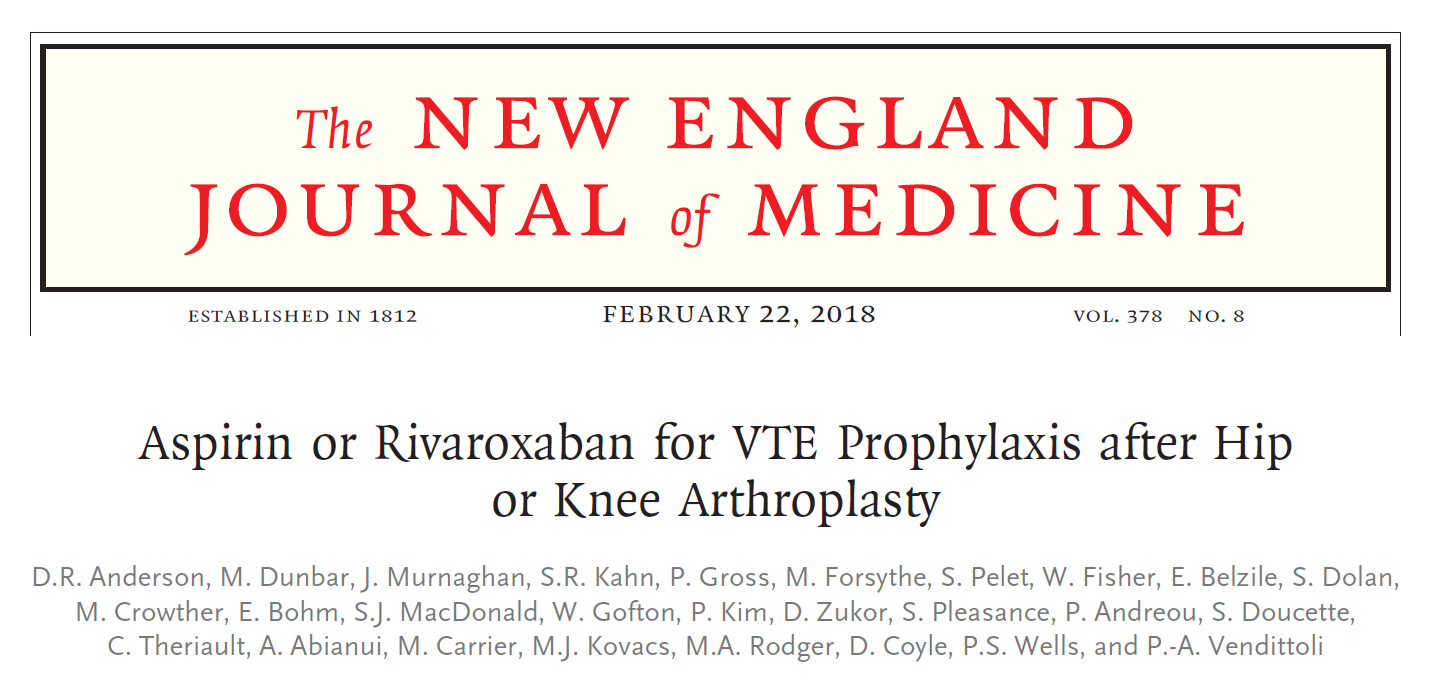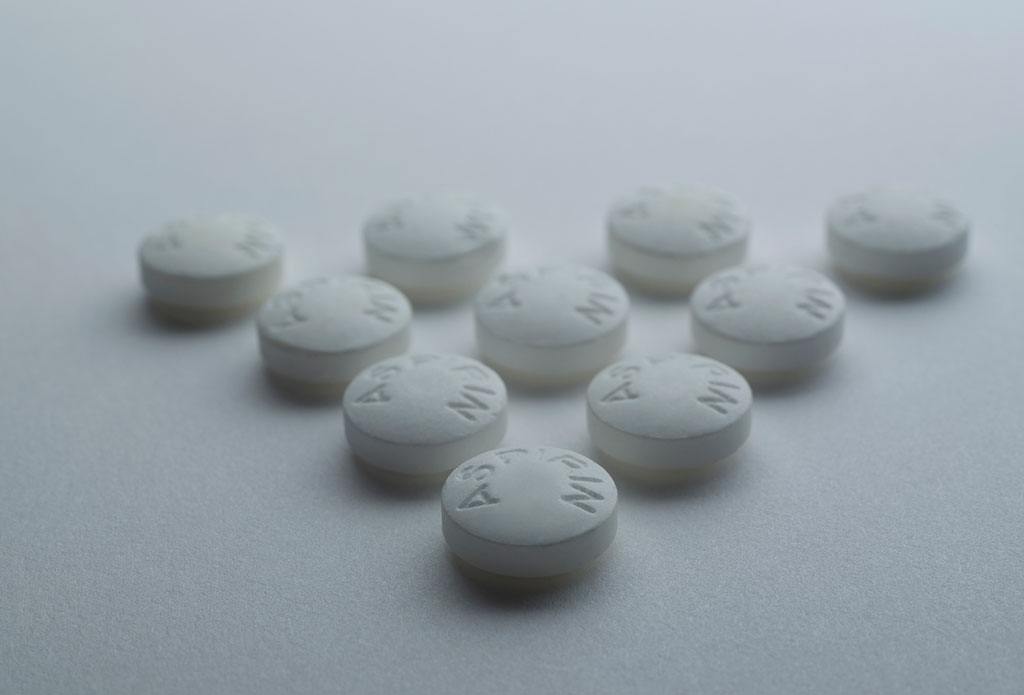Introduction: Aspirin is one of the three most classic drugs in the history of medicine. Recently, this "magic drug" has entered the top medical journal New England Journal of Medicine. This time, what has it achieved?
On February 22, in the paper titled "Aspirin or Rivaroxaban for VTE Prophylaxis after Hip or Knee Arthroplasty", a multi-center, double-blind, randomized, "patient undergoing total hip or knee replacement surgery" Controlled clinical trials have confirmed that aspirin is as effective as the standard anti-coagulant drug rivaroxaban for preventing venous thromboembolism (VTE).
Dr. David Zukor of the General Hospital of Montreal, Montreal, Canada, who participated in the study, said: “We have been very concerned about the prevention of blood clots after surgery in patients undergoing major orthopedic surgery. It is a preventable in-hospital death. The main reason.Although it is well-known that rivaroxaban is effective, aspirin has many attractive advantages, such as being much cheaper, easier to buy, and very safe."
Specifically, the trial recruited a total of 3,424 patients, of whom 1,804 received hip replacement and 1,620 received knee replacement. The patient took rivaroxaban within 5 days of surgery and was then randomly assigned to take aspirin (1707 people) or continue taking rivaroxaban (1717 people). The results showed that VTE occurred in 11 people in the aspirin group and 12 in the rivaroxaban group.

The most worrying complication of anticoagulant drugs is bleeding. In this trial, 8 patients (0.47%) had severe bleeding complications in the aspirin group, 22 (1.29%) had a clinically significant bleeding event (Clinically severed), and 5 (0.29%) had severely affected the rivaroxaban group. With bleeding complications, clinically significant bleeding occurred in 17 (0.99%) patients. There was no significant difference between the two groups. In addition, it is worth mentioning that all bleeding events occur at the surgical site rather than other potentially more dangerous areas such as the brain or gastrointestinal tract.
Dr. Susan Kahn, VTE's authoritative expert, said: “These findings are very important. Although the program to prevent coagulation after major orthopedic surgery has been established, we still hope to find better options for patients. Based on this result, we can see that Aspirin is expected to be an effective alternative to more expensive anticoagulants."
However, scientists also stressed that additional clinical trials are needed to validate this alternative to aspirin. In this trial, a group of patients will only take aspirin and compare it directly with the efficacy of patients taking the rivaroxaban group.
Reference:
Aspirin prevents venous thromboembolism following major orthopedic surgeries, study finds
Souce: NovoPro 2018-03-15
